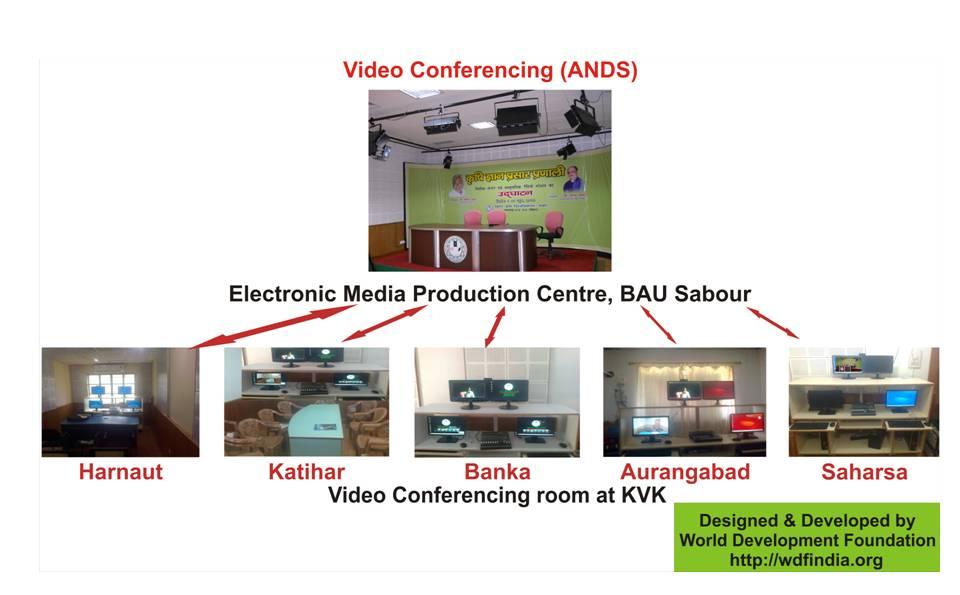 By this association, it shall be able to start a process of use of radio for helping the farmers and poor in education in the field of agriculture, health and hygiene which shall result in social transformation of the country. In this direction, it is proposed to set up five community radio stations in five Agricultural Universities, namely Narendra Deva University of Agriculture & Technology, Faizabad, U.P., Tamil Nadu Agricultural university Coimbtore, Birsa Agricultural University, Ranchi, Indira Gandhi Agricultural University, Krishak Nagar – 492006, Raipur, Chaudhary Charan Singh Krishi Vishwavidyalaya, Hissar, Haryana.
By this association, it shall be able to start a process of use of radio for helping the farmers and poor in education in the field of agriculture, health and hygiene which shall result in social transformation of the country. In this direction, it is proposed to set up five community radio stations in five Agricultural Universities, namely Narendra Deva University of Agriculture & Technology, Faizabad, U.P., Tamil Nadu Agricultural university Coimbtore, Birsa Agricultural University, Ranchi, Indira Gandhi Agricultural University, Krishak Nagar – 492006, Raipur, Chaudhary Charan Singh Krishi Vishwavidyalaya, Hissar, Haryana.
The content on various themes of agriculture and farming shall be developed for broadcast with the help of subject experts in University and outside and media experts. Program shall also be developed for forewarning of the epidemics such as infestation of diseases and pest, heavy rains, floods, cyclone, Tsunami and such other natural calamities in advance. Through the use of radio, enterprising youths in the forming community shall be trained in various gambits of marketing of agricultural produce.
In essence, the project shall have following components:

Research and Innovation of new modes of use of Radio media with ICT for improving the livelihood of poor and underprivileged.Holding Seminars /Workshops / Tutorials (at five remote places) to interact with professionals, communities, stake holders.
Development of an integrated software solution for acquisition of content, media and metadata storage, its selection, making a play list, scheduling, broadcast automation, keeping record of program broadcasts (data logging), billing for commercials as per Government of Indias new guidelines.
Identifying the sources for Hardware and integrating the software for developing a cost effective solution for the community radio stations.
Deployment of the solution in five Agriculture Universities in India.
Imparting training for hardware maintenance, content production, broadcast ethics, rules and regulation, broadcasting.
Development of content of 1000 hours in their own language and dialect. Use of methods such as radio browsing integrated with broadcasts for educating the masses. Use of live discussions for education. Radio Browsing of the Internet is a type of program in which the radio presenters gather information in response to listeners needs and queries from reliable sites on the Internet, on CD-ROMs or other digital resources. During the program, the presenter visits these pages of information on the computer screen together with a local expert (for example, a professor from agriculture institute for a question on farming) and together, they describe, explain and discuss the information directly in the languages used by the community.
Radio browsing is already used in Asia, Africa and Caribbean. It has demonstrated radios potential for overcoming language barriers to access, discuss, select and assimilate information available in a limited number of languages on the Internet. Moreover, being a participatory radio program, Radio Browsing of the Internet, has taken into account the desires of rural communities to assimilate knowledge collectively as against the prevailing modality of individual access to the Internet.
Community databases for development utilize the capacity of the community collectively to produce knowledge and to package and disseminate it in an appropriate manner to meet the immediate needs and priorities of the community.
Assessing the impact. An extensive survey of listeners of related CRS shall be undertaken to help determine the program content, its timing and impact.